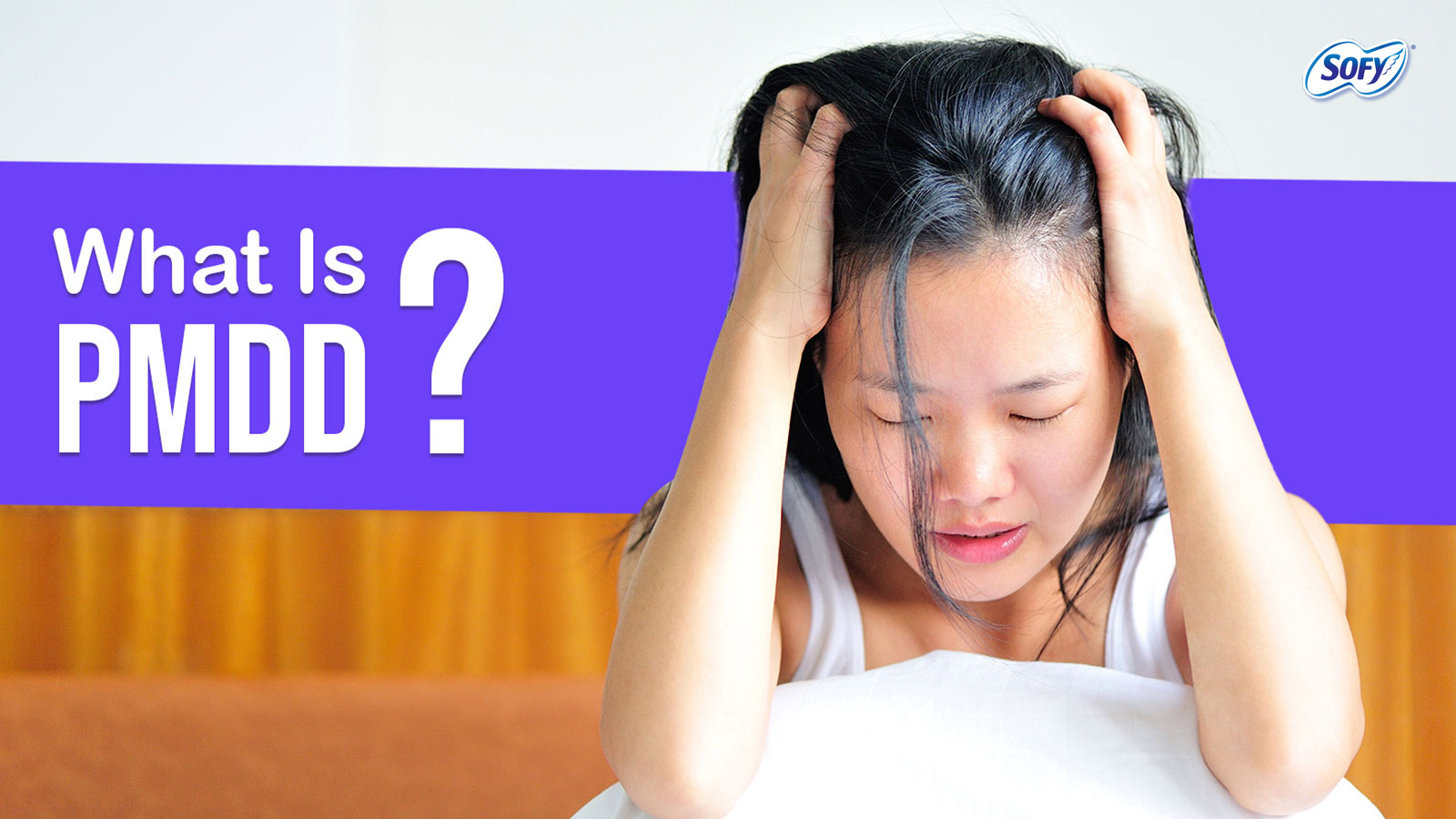If you are someone who has a menstrual cycle and know and go through periods, then chances are that you’ve also experienced some form of PMS in your lifetime. Whether it’s bloating, acne, fatigue, headaches, breast tenderness or just general crankiness, people who get periods also get the side effects.
PMDD or Premenstrual Dysphoric Disorder is a much more severe and often debilitating version of PMS. While regular PMS and PMDD both have physical and emotional symptoms, PMDD causes extreme mood swings and shifts. The extremity of these shift is such that it can actually disrupt your work life and damage your relationships with loved ones.
In both PMS and PMDD the symptoms usually show up 10 days before you start your periods and often continue into the first few days of your period as well. Both PMS and PMDD cause bloating, breast tenderness, fatigue, and changes in sleeping and eating habits.
However PMDD, symptoms are much more extreme with at least one of the following symptoms becoming a trademark for the individual who suffers from PMDD. These symptoms are emotional manifestation of PMDD and include sadness, hopelessness, anxiety, tension, marked irritability, constant anger and extreme moodiness.
Till date the causes of PMDD aren’t clear and there is no clear way of knowing who it affects and why. The underlying depression and anxiety are common in both PMS and PMDD, so it may be possible that the hormonal changes that trigger a menstrual period worsen the symptoms of mood disorders.
While researchers don’t know the exact cause or science behind the occurrence of PMDD most agree that PMDD may be an abnormal reaction to hormone changes related to one’s menstrual cycle.
Recent studies have shown that there is in fact a connection between PMDD and low levels of serotonin. Serotonin is a chemical in your brain that helps transmit nerve signals. Certain brain cells that use serotonin also control mood, attention, sleep, and pain. Hormonal changes may cause a decrease in serotonin, leading to PMDD symptoms.
What all can be accounted for under PMDD symptoms?
As mentioned above, the symptoms of PMDD usually show up the week before you start your period and last until a few days after it begins. Most of the time they are severe and debilitating, and can keep you from daily activities.
- Mood swings
- Depression or feelings of hopelessness
- Intense anger and conflict with other people
- Tension, anxiety, and irritability
- Decreased interest in usual activities
- Difficulty concentrating
- Fatigue
- Change in appetite
- Feeling out of control
- Sleep problems
- Cramps and bloating
- Breast tenderness
- Headaches
- Joint or muscle pain
- Hot flashes
- Diagnosis
If you are someone who has any of the above symptoms, especially to the point that they are disrupting your life, you should see a doctor. The doctor will review your medical history as well as give you a thorough exam to gauge how you’re feeling and coping both emotionally and mentally.
FAQ’s
What are the common emotional symptoms of PMDD?
Emotional symptoms of PMDD can include overwhelming sadness or hopelessness, marked irritability or anger, constant anxiety or tension, mood swings, and a sense of being out of control. These symptoms are much stronger than typical PMS and may impair relationships, work performance, or daily activities.
What physical symptoms accompany PMDD?
Alongside emotional shifts, PMDD may involve physical signs such as bloating, breast tenderness, headaches, muscle or joint pain, fatigue, changes in appetite or sleep, and difficulty concentrating. These symptoms mirror PMS in part but are more intense and disabling.
When do PMDD symptoms occur and how long do they last?
Symptoms typically begin in the late luteal phase — roughly one to two weeks before the period starts. They often continue into the first few days of menstruation and then improve. The key feature is that symptoms are cyclical and tied to the menstrual cycle.
What might cause PMDD?
The exact cause of PMDD remains unclear. It’s thought to be a heightened sensitivity to the normal hormonal changes that occur each menstrual cycle. Changes in serotonin levels in the brain may also play a role, leading to mood disruptions.
Who is at risk of developing PMDD?
While PMDD can affect people of reproductive age, certain factors increase risk—such as a history of mood disorders, family history of PMS/PMDD, or significant stress. Although symptoms may resemble other disorders, the timing and severity tied to the cycle help in diagnosis.
How is PMDD diagnosed?
Diagnosis is based on medical and menstrual history plus symptom tracking. A doctor may ask you to chart symptoms over several cycles. To qualify for PMDD, symptoms must include at least one mood- related sign and generally five or more others, repeating each cycle.
What treatments are available for PMDD?
Treatment options include lifestyle changes (diet, exercise, sleep), stress-management, and medical interventions like antidepressants (SSRIs) or hormonal contraceptives. These aim to stabilize mood, regulate hormones, and reduce the intensity of symptoms.
Can lifestyle changes help manage PMDD symptoms?
Yes — lifestyle measures can support symptom relief. These include regular physical activity, a balanced diet, limiting caffeine and alcohol, ensuring good sleep, and engaging in relaxation techniques. Though not a cure, these habits can reduce the impact of PMDD.
When should someone seek medical advice for possible PMDD?
If pre-period symptoms are so intense they disrupt daily life, work, or relationships, it’s important to consult a healthcare provider. Mood changes that seem out of control, suicidal thoughts, or symptoms that last beyond menstrual onset warrant medical evaluation.

